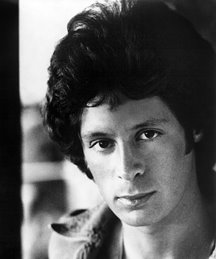
"So we beat on, boats against the current, borne back ceaselessly into the past."
-F. Scott Fitzgerald
"I had finished touring for about a year on the first solo album," says Eric, "and had done absolutely nothing other than see hotels and backstage areas and airports for a year.
"I thought, 'What on earth am I going to write about?' My brother handed me an anthology of F. Scott Fitzgerald's short stories. He starred certain stories for me in the book and said that I should read them in a certain order. The first one I read was 'Winter Dreams,' which is to this day one of my three or four favorite Fitzgerald short stories. I read it and thought, 'How could this guy know so much about me?' It was scary.
"Fitzgerald got into the darkest recesses—the stuff you don't even want to admit to yourself about yourself. Things about relationships with girls that you would never want to admit—horrible, rotten guy things that you’ve done to some girl that you knew you could take advantage of.
"She was there, she was nuts about you, and you thought this is really cruel because I really don't love her, but you did it even though you felt guilty about doing it. All of a sudden I'm reading this stuff saying, 'God, this is scary.' I read that book from front to back and wondered, 'What else has this guy written?' I then read The Great Gatsby, This Side Of Paradise, and Tender Is The Night. I even read The Last Tycoon. Then I got his journals. I became a complete Fitzgerald freak because there was so much incredible, quotable stuff, and the themes he wrote about were the same things that I had been thinking about and on the verge of writing about for a long time. It was really great stuff.
"Sometimes when you're sitting in a hotel room after going onstage and mindlessly playing the same songs over and over again, you forget why you're there. When it comes time to write, there's nothing that is stimulating and turning your brain on. Fitzgerald turned my brain on every night and elevated my thinking.
"I would read a Fitzgerald short story, put the book down, and be completely depressed. Then I'd walk over to the piano and these great thoughts would come on. It was an amazing thing. It took elevating my brain to the level of reading great literature. It was just one of the things that was necessary to write lyrics as good as the lyrics on that album.
"I write better when I'm depressed. I don't know about other people. Fitzgerald said that all writers really have one story to tell and they keep rewriting and retelling it. A lot of the short stories that Fitzgerald wrote are basically the same theme as The Great Gatsby. The more I read, the more Fitzgerald's prose blew me away. It was sheer poetry. I started to think along those lines on the conscious level. On the subconscious level, I was fast becoming disillusioned with the music business—both with all of the people I was dealing with, as well as with the music business in general. I was starting to know too much about how it works."


5 comments:
This is such a magnificent insight to how beautiful songs come into being
This is one of my favorite revelations by Eric. it explains so much of why I (we) relate to his music so intimately. I remember thinking "How does this guy know me so well?" when I heard BATC...such a deep feeling.
Eric offers the perfect explanation of why his music and lyrics transport one to a different place and time--because that's where they originate. Fitzgerald opened a wellspring of genius for Eric. What a fantastic revelation!
I love these comments. I got turned on to Fitzgerald by Eric, so I have to thank him (and his brother) for helping intrroduce me to him at a time when I hadn't yet been introduced to his work at school, the way most people first encounter it.
For interesting perspectives on Fitzgerald and The Great Gatsby in particular from a very different culture, I highly recommend Reading Lolita in Tehran by Azar Nafisi. A window into the experiences of young Iranian women as they're introduced to works of the Western canon, and the affect reading those works has on how they view the Western world and their own lives.
Post a Comment